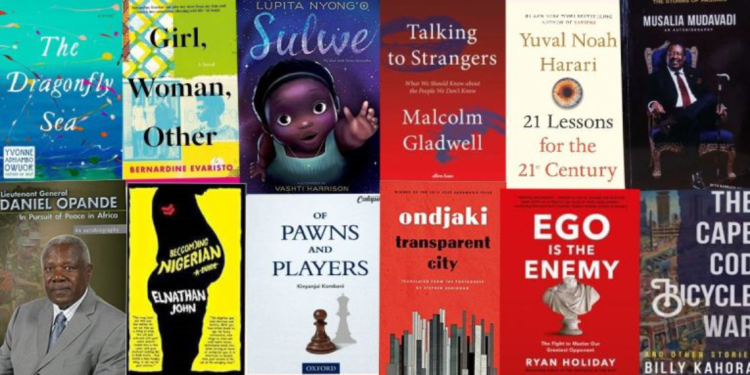Over the past century, African writers have enriched global literature by exploring their lives, experiences, cultures, histories, and myths through diverse forms, styles, and languages. Their works have reached audiences across Africa, Europe, the Americas, and Asia, written in English, French, Portuguese, Arabic, Kiswahili, and various indigenous languages.
These writers are known for their exceptional originality, flair, and sincerity. From Chinua Achebe, often hailed as the father of modern African literature, to Trevor Noah, a prominent figure in contemporary literature, African literature continues to be both educational and entertaining.
While not exhaustive, this list highlights some of Africa’s most impactful books from the past century:
- ‘Things Fall Apart’ by Chinua Achebe, Nigeria Achebe’s seminal work, published in 1958, is renowned as a cornerstone of modern African literature. It vividly depicts the clash between traditional African societies and colonial rule through the story of Okonkwo, and examines gender dynamics within patriarchal cultures. The novel has been translated into over 50 languages and remains a widely read classic.
- ‘Half of a Yellow Sun’ by Chimamanda Ngozi Adichie, Nigeria Adichie, a leading voice among contemporary anglophone authors, explores the impact of the Biafran War in her 2006 novel. Celebrated for its character-driven narrative, the book won the Women’s Prize for Fiction in 2007. Adichie is also known for her works ‘Purple Hibiscus’ and ‘Americanah’.
- ‘A Grain of Wheat’ by Ngugi wa Thiong’o, Kenya Written in Gikuyu, Ngugi’s 1967 novel addresses themes of colonialism and identity, reflecting his dedication to Africa’s cultural and political liberation. Ngugi’s influential works include ‘Petals of Blood’ and the play ‘Ngaahika Ndeenda’.
- ‘Our Sister Killjoy’ by Ama Ata Aidoo, Ghana Aidoo’s 1977 debut novel is a key work in African feminist literature. It tackles themes of identity, the black diaspora, and colonialism, including discussions on same-gender relationships that were considered progressive for its time. Aidoo won the Commonwealth Writers’ Prize in 1992 for ‘Changes’.
- ‘So Long a Letter’ by Mariam Bâ, Senegal Bâ’s 1979 semi-autobiographical novel is a foundational text in African feminist literature, examining gender, social change, and the role of women in post-colonial Senegal. The novel won the first Noma Prize for Publishing in Africa in 1980.
- ‘Cairo Trilogy’ by Naguib Mahfouz, Egypt Mahfouz’s epic trilogy, set against colonial Egypt, provides a deep exploration of class, identity, and colonialism. Published in 2001, the trilogy earned Mahfouz Egypt’s State Literary Prize for the Novel in 1957 and the Nobel Prize in Literature in 1988.
- ‘Broken Glass’ by Alain Mabanckou, Congo Mabanckou’s 2005 novel, known for its sharp satire, follows a Congolese teacher who documents local life while grappling with personal failure. Mabanckou also won the Prix Renaudot for ‘Memoirs of a Porcupine’ in 2006.
- ‘Nervous Conditions’ by Tsitsi Dangarembga, Zimbabwe Published in 1988, Dangarembga’s novel is notable as the first book by a Black Zimbabwean woman in English. It explores themes of education, identity, and post-colonial society. The novel won the Best Book of the Commonwealth Writers’ Prize in 1989. Dangarembga’s follow-up, ‘This Mournable Body’, revisits the protagonist to delve into broader themes of colonialism and capitalism.
- ‘Burger’s Daughter’ by Nadine Gordimer, South Africa Gordimer’s 1979 novel addresses the struggles of anti-apartheid activists in South Africa. Despite receiving the Nobel Prize in Literature for her insightful portrayal of racial tensions, many of her works faced bans in South Africa for their critique of apartheid.
- ‘From a Crooked Rib’ by Nuruddin Farah, Somalia Farah’s 1970 debut novel, inspired by a Somali proverb, explores the plight of women in an unhappy marriage within Somali society. Farah’s subsequent works continue to offer critical reflections on conflict and postcolonial identity, earning him the Neustadt International Prize for Literature among other accolades.
These books not only provide a window into African experiences but also highlight the continent’s rich literary tradition.
















